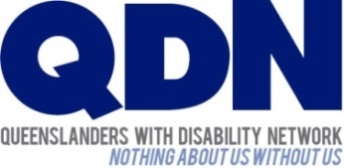When you are establishing a Peer Support Network in your community, it is very helpful to have the right team supporting you – not just with resources, or interest in being a member, but helping you to get it started.
Who?
Think about your peers in your community:
- Who stands out as someone with a lot of energy and enthusiasm for disability issues?
- Who is well connected to others in your community?
- Who has experience in establishing groups, campaigns, networks?
- Who wants what the network can offer?
- Who wants to build their leadership and facilitation skills?
- Who is generous with their time and energy?
Write a list, ask others for suggestions, and think about how you might approach people to join your team.
How to get your team together
Once you have a list of ‘possible’ people, ask to meet with them, and prepare what you are going to say:
- Remember your value proposition – what benefit can this network offer?
- Be clear about what help you need – organising, marketing, planning, facilitating etc.
- Know what skills you have and what skills the network needs to complement your own skills.
When you meet with a potential member of your team:
- Be clear in communicating what you are asking for help with.
- Remember, people like to be asked for help, and are often willing and eager to be noticed as someone with things to offer their community.
- Have fun – don’t only talk about the network – build the relationship with the person by asking about them and their interests.
- Work out some principles or ground rules for how you work together e.g. open communication, sharing tasks fairly etc.
When you have your team, treat these people well and start thinking about the network as ‘ours’, not just ‘yours’. Make space for the others to lead, learn and grow too – try not to take over.
For more information see:
Quick Guide: Finding external Network Support (organisations can be very helpful in connecting you with people).
Quick Guide: Who is your peer network for? (your posse will likely come from this group).
Quick Guide: Useful resources for group operation (this will help you think about what help you need).
Useful links:
Great resources are available from the Centre of Excellence for Peer Support (mental health): http://www.peersupportvic.org/index.php/2014-12-15-22-42-49/2014-12-16-02-22-27
Tips for building good communication in relationships: https://www.betterhealth.vic.gov.au/health/healthyliving/relationships-and-communication
Co-authored by Queenslanders with Disability (QDN)

The information on this page is also available as a downloadable Quick Guide, by clicking below. There are PDF and word versions.
